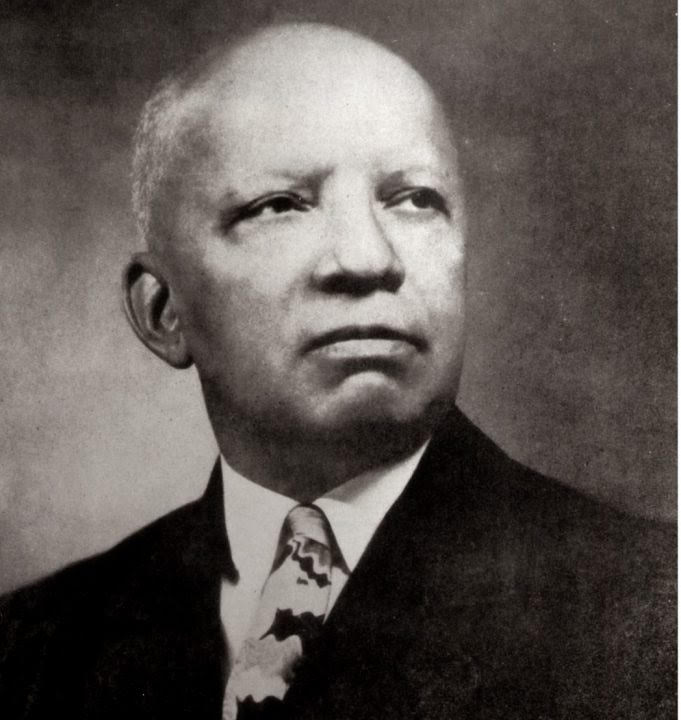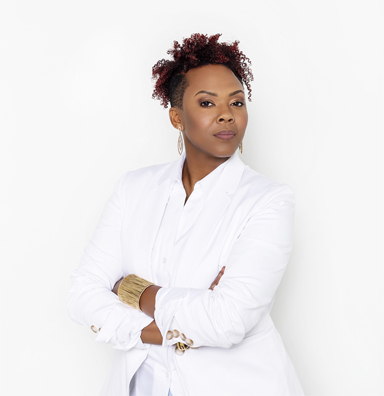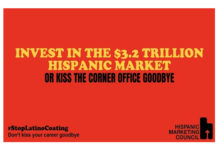Continuing our guest column series on US Black History Month, leadership and diversity expert Nicole D Price highlights how celebrating the month can help to normalise conversations about race and diversity in the workplace. She also provides valuable nuggets of advice for HR/D&I professionals on how to best celebrate the month in a meaningful way.
Black history month is the expansion of Negro History Week, which was started by Carter G Woodson in 1926, as a strategy to encourage US citizens to expand their knowledge of people who make history rather than simply studying the historical accomplishments of a few ‘great’ men. Black history is US history, or rather, Black History should be US History. While US history is not complete without the stories of all Americans, that fact has not drastically changed history books. Therefore, we celebrate and honour Black History Month.
Before 1619 when the first slave ship arrived on the shores of North America, there were people of African descent on the continent. This little known Black history fact predates the formation of the United States of America. I was not aware of this information and many US citizens still aren’t. This is one reason why Human Resource professionals and organisational leaders need to know about, celebrate and engage in meaningful Black History Month acknowledgments.

DIVERSE HISTORICAL PERSPECTIVES
These celebrations are about being organisationally smarter. They are not about token niceties. In her book, The Next IQ, Dr Arin Reeves highlights how we can take our organisations to the next dimension; learning and competing at a higher level in the 21st century by shifting from single stories to understanding multiple and diverse viewpoints.
Black History Month is one way to gain additional and diverse historical perspectives. This insight makes us smarter as individuals, but also as organisations as we strive to improve our workforce, our workplaces and the marketplaces in which we operate.
TOP ACTIVITIES
There are three ways that organisations can best celebrate Black History Month:
- Understand the history of the Black History Month celebration: Nothing comes under attack in organisations more than events directly connected to race. It is imperative that organisational leaders understand this so that they can take an offensive position when opposition arises related to the celebration activity. February was not chosen because it is the shortest month. Black History Month does not negate the racial identity of Black people all other times throughout the year, and it is insensitive to suggest a White History Month celebration because most of US history already provides fairly positive descriptions of the contribution of White US citizens. Alignment surrounding the importance of the month can only be obtained if myths are dispelled and organisational leaders are aware of the history and purpose of the month.
- Encourage deeper study: One of the most notable, Black historical figures is Reverand Dr Martin Luther King, Jr. He is best known for his I Have a Dream speech given in Washington, DC. To honour the vision of Carter G Woodson, we have to go beyond that speech and other similarly, narrowly-focused revisionism of history. Leaders have to hold event organisers accountable to go beyond surface-level information about civil rights and other historical milestones. Using King as an example, organisers must be encouraged to share facts about other people who were instrumental in the Civil Rights Movement beyond King, such as Bayard Rustin (the gay organiser of the Southern Christian Leadership Council) or Dr Dorothy Height (revolutionary and President of the National Council of Negro Women). King could not have been great without the contributions of many people. If your organisation does choose to focus on widely-known Black historical figures, share information about them that is lesser known. For example, if you are going to highlight King, share information about the five years of activism he engaged in after the March on Washington. Highlight that he shifted his focus to a revolution on issues of poverty. Or share how the Counter Intelligence Programme (COINTELPRO) was used to discredit his efforts and smear his name. This is important to honouring the intent of the month. Also, in the spirit of deeper study of Black history, organisational leaders could deepen cross-racial understanding by inviting speakers to talk about various aspects of Black history that intersect with other identities. One method for accomplishing this could be to share Black women’s history during Women’s History Month.
- Share the Black history of your organisation: Is your headquarters located in a state like Oregon where it was historically illegal for Black people to live? If so, share that history. Another option is to share the racial history of the products you sell. As an example, American Greetings and Hallmark should educate their employees on the history of selling and profiting from greeting cards with blackface because it is part of their product history. This information is not meant to be shameful. What it is intended to do is increase the knowledge and awareness of present day employees so that they are advocates in preventing negative historical occurrences from happening in the future. It can also help to explain persistent challenges with recruitment and retention that an organisation may or may not experience in present day. Lastly, it can keep other organisations from engaging in the same kinds of sales practices.
Taking steps towards engaging in these three activities will help to normalise conversations about race and diversity in general. It will also encourage effective and informative celebrations of Black History Month. It will be a great day when US history reflects the experiences and milestones of all its citizens. Until such time, organisations are uniquely positioned to lead the way.

AUTHOR BIOGRAPHY
Nicole D Price is a leadership and diversity expert, and the owner of a leadership development company in Kansas City, Missouri. She and her team specialise in ‘helping difference get along’ on teams. If you would like to reach out to her/her team, visit the website livelyparadox.com.
GUEST SERIES DEDICATED TO BLACK HISTORY MONTH
In our first guest column, dedicated to African American History Month, AstraZeneca’s diversity champion Dawn E Christian outlines why she believes Black History Month is Everybody’s History Month. She also reveals how her grandfather, Dr Merl R Eppse, played an instrumental role in the creation of Black History Week in the US. Click here to read.
In the second guest column, Michelle Wimes, Chief Diversity and Professional Development Officer at international law firm Ogletree Deakins, reflects on the commonly asked question: ‘Why does everything always have to be about race?‘ Wimes also highlights the importance of celebrating the accomplishments of Black people both in and outside of the workplace. Click here to read.




































